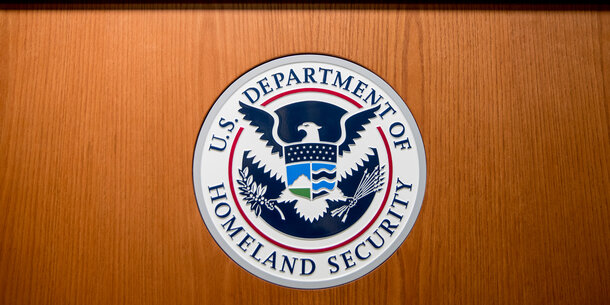A federal jury awarded $300,000 this month to a Maine State Police trooper who was demoted after blowing the whistle on privacy violations at the state’s intelligence fusion center. The federal government spurred the development of fusion centers after 9/11 as a means for sharing counterterrorism intelligence among state and local governments, as well as select private entities. The facts revealed during this trial adds to a mountain of evidence that fusion centers require greater regulation and oversight.
The trooper alleged that the Maine Intelligence and Analysis Center, 1 in a network of 80 fusion centers operating across the country, was illegally collecting and sharing information about Maine residents who weren’t suspected of criminal activity. They included gun purchasers, people protesting the construction of a new power transmission line, the employees of a peacebuilding summer camp for teenagers, and even people who travelled to New York City frequently. The whistleblower also claimed that fusion center supervisors pressured him to illegally share sensitive FBI information he had access to because of his position on the Joint Terrorism Task Force.
As detailed in a new Brennan Center report, the whistleblower complaint was far from the first indication that fusion centers posed risks to Americans’ civil liberties and privacy rights. Civil liberties groups raised concerns as the network was being built without proper regulations or independent oversight. Leaked fusion center reports revealed improper monitoring of Muslim Americans and protesters from across the political spectrum, even as the centers expanded their missions beyond counterterrorism to “all crimes” and “all hazards.”
A 2012 investigation by the Senate Homeland Security and Governmental Affairs Committee found that fusion centers “forwarded ‘intelligence’ of uneven quality — sometimes shoddy, rarely timely, sometimes endangering citizens’ civil liberties and Privacy Act protections, occasionally taken from already-published public sources, and more often than not unrelated to terrorism.” Significantly, the committee found fusion centers had failed to produce actionable counterterrorism intelligence.
But the federal government continued to support fusion centers and implemented few reforms. Though fusion centers are operated by state and local governments, the Department of Homeland Security and Department of Justice provide funding, access to federal intelligence systems, and assigned personnel from the FBI and DHS.
Today, fusion centers are operating in every state in the union, with little oversight and almost no public accountability. Indeed, federal auditors have complained that the way state governments administer DHS grant funds makes it difficult to determine how much money fusion centers receive and how they use it.
Shortly after the Maine trooper filed his lawsuit in May 2020, a hack of a fusion center contractor exposed 296 gigabytes of intelligence records from more than 200 law enforcement agencies, including the FBI and DHS. The records substantiated the trooper’s complaints about privacy and civil rights violations at the Maine fusion center and showed similar abuse occurring throughout the network, particularly in tracking Black Lives Matter protests. The documents also showed that fusion centers had regularly spread misinformation sourced from dubious social media posts, including false reports alleging that anti-fascists were starting wildfires or planning acts of violence. These specious reports distracted law enforcement during public safety emergencies.
The leak also revealed the inadequate vetting of the contractors and private sector entities that participate in fusion centers, indicating that the network has become more of a security liability than a security solution. The participation of private sector entities in fusion center intelligence activities has also raised concerns that these centers are serving private interests rather than public safety.
Local advocates from Maine, as well as Massachusetts, Texas, and California, have called for closing fusion centers. State and local representatives have the authority to determine whether the benefits of maintaining a fusion center are worth the costs. But the federal government also has an obligation to guard against the misuse of the resources, systems, and personnel it provides — and it must ensure that Americans’ constitutional rights are not infringed upon by the improper collection, retention, and dissemination of personally identifiable information of persons not reasonably suspected of criminal activity.
Our report recommends that the secretary of homeland security take immediate action to ensure that DHS grants to fusion centers are transparent and used for their intended counterterrorism purpose. We call upon the secretary to require regular audits of fusion centers to ensure that data is protected against unauthorized disclosure and that DHS resources are not used in violation of constitutional rights.
We also urge Congress to establish a special inspector general to audit the national network of fusion centers to detect waste, fraud, abuse, and illegality and to use the results of this audit to establish a permanent, independent federal oversight body to ensure that future violations are discovered and remedied in a timely manner.
These reforms are necessary to ensure that fusion centers’ capabilities and resources are not abused, and that Americans’ rights to freedom of speech and association are preserved.



